Getting people to eat less meat is one of the most difficult issues of the twenty-first century.
At home, Preston Cabral eats meat almost every day, but on “Meatless Mondays” and “Vegan Fridays,” he gets his favorite meals at school. After lunch on a Friday at I.S. 318 Eugenio Maria De Hostos, the 12-year-old said, “Today I ate chips, tangerines, and this thing that looked like chili but without the meat—just beans.”
Preston’s family has started cooking more vegetarian meals at home as a result of the Monday and Friday lunches, which experts say is a healthy change for both the family and the environment.
Also read-Measles Deaths : Measles Deaths Worldwide Jumped 40% Last Year, Health Agencies Say
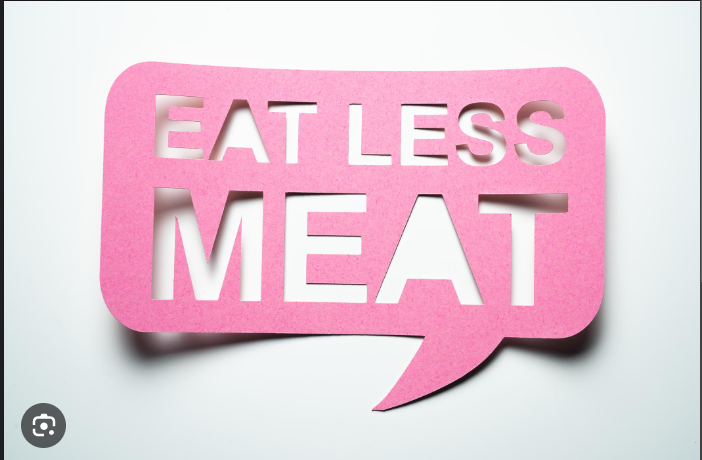
Among the most difficult issues of the twenty-first century is getting people to eat less meat, and programs like these are among the few that have been shown to be effective.
Data on eating less meat
That will necessitate altering how people consume meat, especially in wealthy nations, according to experts. People in the United States, Canada, and Europe consume far more meat than is advised in terms of health, particularly red and processed meat. They run the risk of developing obesity, heart disease, stroke, and other conditions that afflict developed countries.
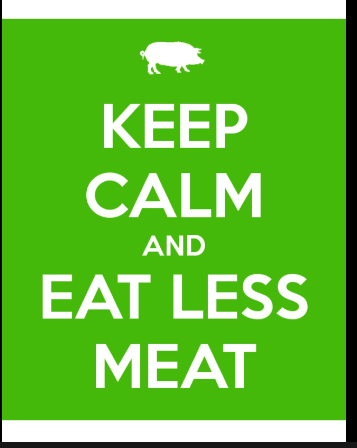
Scientists estimate that the average adult in the United States consumes roughly twice as much protein per day as is advised, primarily from meat (about 100 grams). According to the Food and Agricultural Organization of the United Nations, that comes to more than 328 pounds of meat per person annually, comprising 58 pounds of poultry, 37 pounds of beef, 30 pounds of pork, and 22 pounds of fish and seafood.
Benefits of not eating meat
You may have heard that limiting how much meat you eat has a variety of benefits, including weight loss and better gut health. Cutting back on meat has indeed been linked to improved health and a reduced risk of certain diseases. However, these benefits seem to depend on what other foods you eat and what types of meat you limit.
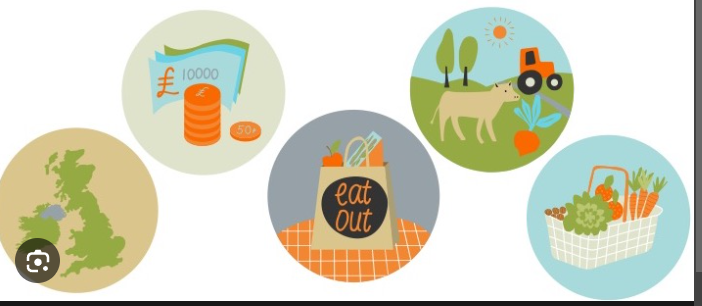
This article reviews six potential benefits of reducing or avoiding meat and provides tips on how to eat a nutritious diet with less meat.
Eating less meat may lower overall cancer risk
Another possible way to avoid cancer? Eat less meat, suggests a study published online on February 24, 2022, by BMC Medicine. Researchers collected health data from approximately 472,000 adults ages 40 to 70. These people reported how frequently each week they ate meat (processed meat, beef, lamb, pork, chicken, and turkey), or—if they avoided meat completely—whether they ate fish or were vegetarian or vegan.

They found that 52% of the people ate meat more than five times per week, and 44% ate meat five or fewer times; 2% ate fish but no meat, and another 2% were vegetarian or vegan. Researchers then followed the participants for 11 years to see who developed cancer. They discovered that the overall cancer risk was 2% lower among people who ate meat five times or less per week compared with those who consumed more. The risk was 10% lower among those who ate only fish and 14% lower among vegetarians and vegans.
Reasons to eat less meat
The idea that one should eat more whole foods and less meat is currently very popular. We should continue having this conversation. Those who reduce their meat consumption must take it upon themselves to inform others about the advantages of a reducetarian diet. Reducetarians are a group of individuals who, regardless of their motivation or degree of consumption, are dedicated to cutting back on meat.
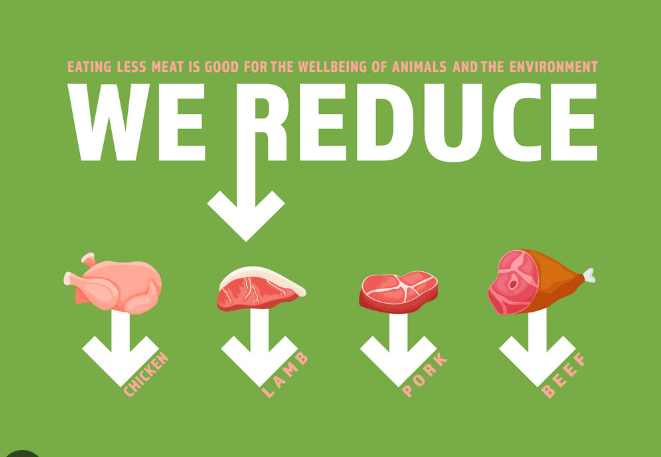
People will feel more at ease and self-assured to give it a try as long as we continue to emphasize that it’s never a “all or nothing” lifestyle. Whatever effort people make to better the world, ethics, or their own health, we should all be proud of.
The health factor
A plant-based diet focuses on fruits, vegetables, grains, beans, peas, lentils and nuts. It’s rich in fiber, vitamins and other nutrients. And people who don’t eat meat, called vegetarians, generally eat fewer calories and less fat. They also tend to weigh less. And they have a lower risk of heart disease than nonvegetarians do.
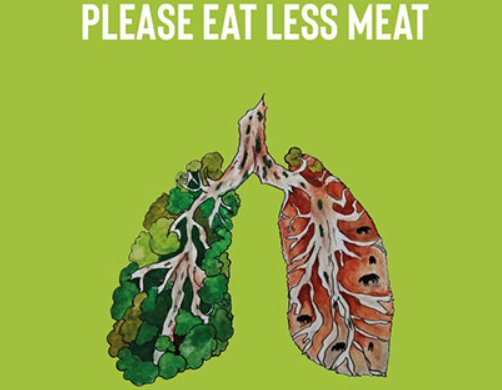
Research shows that people who eat red meat are at a higher risk of death from heart disease, stroke or diabetes. Processed meats also make the risk of death from these diseases go up. And what you don’t eat also can harm your health. Diets low in nuts, seeds, seafood, fruits and vegetables can also make your health risks go up. The good news is that even eating less red and processed meat has a positive effect on health.
Also read-Illuminating Eating Disorders: Insurance Data Points To Who’s Suffering
images source: Google
Disclaimer: The opinions and suggestions expressed in this article are solely those of the individual analysts. These are not the opinions of HNN. For more, please consult with your doctor.




































